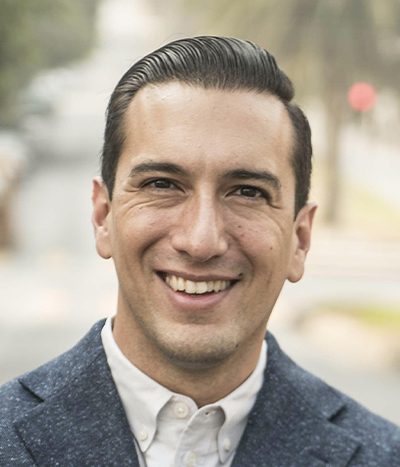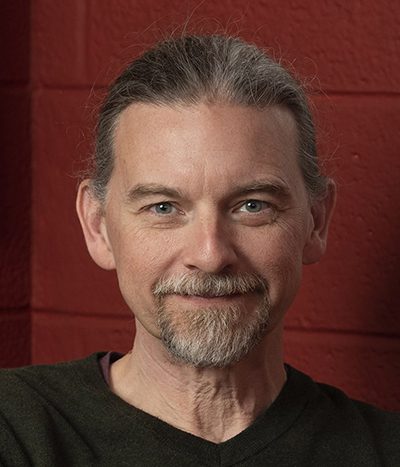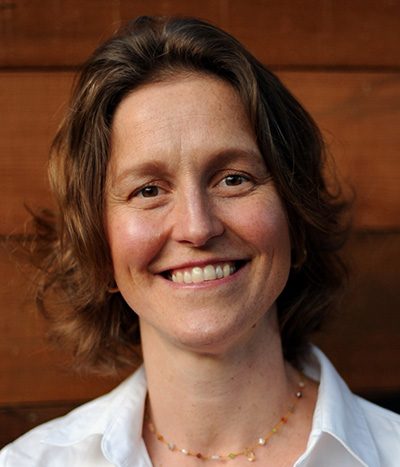- Dig in to the science and practice of empathy, interconnection and vulnerability and why healthy social connection is essential to our well being
- Explore the obstacles to pro-sociality at the individual and collective levels, and how we can move beyond these toward a more just and sustainable world
- Consider that if clinical psychology is going to make new strides in health and well being, it must look more deeply at the group and societal levels, beyond only the individual
Summit Sessions
Day Sessions Menu
Day 1
Mission: JOY Global Community Watch Party (Ended)
Day 2
The Inseparability of Joy and Sorrow (Ended)
Day 3
Joy is an Inside (Out) Job (Ended)
Day 4
Interconnection & Ubuntu (Ended)
Watch Now
A Few Sessions Still Available For You
 Acts of Joy
Acts of Joy
You’re invited to join the
Big Joy Science Project
Find out which micro acts of joy work best for you in 7 min x 7 days
 Acts of Joy
Acts of Joy
You’re invited to join:
Big Joy Science Project
The Science of Empathy, Interconnection, and Ubuntu
with Jamil Zaki, PhD and Jim Coan, PhD
What you'll learn
About the speakers

Jamil Zaki, PhD
Jamil Zaki, PhD, is an Associate Professor of Psychology at Stanford University. He is especially known for pioneering a new perspective on empathy as a learnable skill. In 2019 he was awarded the Presidential Early Career Award for Scientists and Engineers, and his work has widely been published in academic journals and popular publications. His first book The War For Kindness was published in 2019.

Jim Coan, PhD
Jim Coan, PhD, is an American affective neuroscientist, clinical psychologist, writer, podcast host, human rights activist, and psychology professor at the University of Virginia in Charlottesville, where he serves as Director of the Virginia Affective Neuroscience Laboratory, Co-Director of UVA's College Fellows Program, and Principal of Brown Residential College. His research focuses on how the brain transforms interpersonal relationships into better health and well-being. He hosts the popular science podcast Circle of Willis, appeared for two seasons on the National Geographic television program Brain Games, and has written for public audiences via The Washington Post and VQR.

Emiliana Simon-Thomas, PhD
Emiliana Simon-Thomas, PhD, is the Science Director at UC Berkeley’s Greater Good Science Center (GGSC). Trained in neuroscience and social psychology, she runs the GGSC’s research fellowship program, manages major research initiatives, teaches The Science of Happiness, and collaborates, partners, and advises on multiple projects aimed at providing insights and resources for understanding and improving well-being. Emiliana is an international expert voice on the foundations and advantages of social connection and prosocial states and behaviors (e.g. compassion, gratitude), the origins of well-being, as well as on the most promising strategies for enhancing it individually, in relationships, and collectively.
WANT Lifetime Access For you & A Friend?
Get lifetime access to all Global Joy Summit recordings + help support this global non-profit project.
Leave a comment



This was wonderful and inspiring as a therapist
As a missionary friar this was amazing keep up guys love you
You each touched on subjects so unique and transformative for our lives. Thank you!
Interesting to listen results from research and love how conversation flow among three of you. Thanks!
This was Amazing!!! The entire interview was information I try to communicate to my (childhood traumatized and betrayed) husband. I can’t do it like you three have done and sadly, I couldn’t get him to watch it.
A few years ago I was sent for a MRI of my head. Not having had one before, I didn’t think much about it. No sooner did the machine begin moving up and in, I began shouting “wait wait wait”. This happened three times before the technician searched aroung the building for someone to hold my hand; felt a little wierd at first, and I could see he wasn’t very comfortable. After all he was a stranger- and many years younger than me, but it made all the difference. I clutched his hand and the test was able to be completed. Just having SOMEone’s hand to hold helped me manage the terror I was thrown in by that machine.
I’m so sorry you married someone who enjoys living in their misery. My heart goes out to you, and I wish you the very best going forward. With Loving Kindness & Compassion, Vancouver BC.
Absolutely amazing talk. Thanks, thanks a bunch from Brazil. May you have alwats the strength to move on.
The high level of this conversation goes deep inside. Thanks to all of you.
This was an incredible session. I love learning how we are turning into transactional human beings, trying to fit in wherever we are, trying to make our way into groups, whether or not we agree with what group we are trying to join. It fit for me the incredibly hurtful ways groups can make disastrous choices, which they try to make groups of people”behave” on a political basis, rather than allow ourselves to be more compassionate towards each other. I am going to try and watch this segment again it was so good.
This is my second time watching this interchange, and I am even more impressed than I was before.The idea of working with groups of people rather than just individuals is amazing…We have too much group think going, where people join groups so they can feel they belong somewhere, being transactional people rather than kind people has really energized me..and I hope others.
This was fascinating and my mind was blown on so many levels! I love how they discussed moving the emphasis from individual to social perspectives to explain human behaviour and how we relate. So much information and so much to digest (pun intended)!
Very informative. A bit dry & academic in spots, but not surprising. Overall content was definitely valuable especially the solutions about reversing social medias hold on the collective consciousness. I think the pandemic and the lockdown was very destructive to a lot of peoples psyches was incredibly disruptive. We need to re-engage in community, collective pursuits, & massive social & interpersonal re-engagement, If we are going to reverse & heal what’s been going on globally for at least the last decade. I also thought the revelation of shifting the focus from individual clinical psychology and psychology to group/social consciousness and including mental and emotional health as critical components to overall well-being and wellness is long overdue.
Fantastic conversation: Inspiring and practical
thank you all so much for sharing your years of research and thinking – I took pages of notes – but more importantly your care and humanity shone thru even more than your wisdom
thank you thank you thank you
This information is so important for people to hear. In this period of humanity the individual and the individual’s needs and rights are overshadowing the importance of community. Without the development of community within communities, democracy cannot survive. In fact humanity cannot survive. Your emphasis on focusing on macro rather than micro was so confirming of how our society used to be. I was raised in the 50s when community caring and providing for each other was the standard. Not out of obligation, but out of our innate desire to nurture and care for our community and all communities within our limited, at that period of time, reach. We need to once again make that the norm.
You didn’t mention that “forced isolation” is what happens to many elders in U.S. society and often it’s coupled with grief and unaffordable counseling costs.(and no hand holding !)
Thank you for this credible, informative discussion.
Wow! I could listen to you three for ever!! Thank you Thank you.
So great to hear about your work. From my understanding and from following the work and teachings of the former teacher, Dr. David Hawkins (mystic, psychiatrist, psychologist) along with the Honorable Dalai Lama and Arch Desmond Tutu, the focus is not activism or out there. It’s within us, as we grow and become aware and remove the inner obstacles and connect with our Higher Self, we eventually emanate a higher energy, and this affects our relationships. Psychology may benefit when it includes a more enlightened spiritual component and this understanding helps us grow our deep understanding and relate to others. The benefit of the spiritual component can be measured as the Dalai Lama is showing and Dr. David Hawkins has demonstrated during his lifetime. Dr. Hawkins helped to relate to science. Science and Psychology is limited to the level of REASON. But to grow as spiritual beings, there is a leap or shift to the understanding of the Higher Self. You know it when you are with them….they emanate the higher power, just like DL and Arch and Dr. Hawkins (and the great yogis and gurus and Buddha and Jesus.) Also, I have thought, it is not so far fetched to have internet similar to public radio and television. Free public internet and people can chose between public and private. I think algorhythms (spelling?) used in commerce/internet are undemocratic. We should at least educate people on how they are used in our system. This information is being carefully controlled, Europe is doing a better job to serve the public. Sorry, I think I’m starting to get off subject. Thank you for all you bring to the subject of Psychology, etc. It’s all so fascinating.
Dr. Zaki states, empathy is a learnable skill. The Dali Lama, in the above interview stated, formal education is appropriate, but compassion is not taught in school, and teachers would get better results with their students if what they did teach was taught with compassion. With Loving Kindness & Compassion, Vancouver BC.
Inspirational ! To also bring up being able to be vulnerable was a high point .
Enjoyed this hour tremendously
enjoyed the comversation on a socially wired baseline. Felt awkward on the alone part. first time that has happened, so I have food for thought to process and meditate on.
Thank you very much. This conversation changed my perspective.
“人之初,性本善 ” there is this Chinese saying that we are born to be kind.
Interesting to see that scientific support for that.
delighted to hear David Graeber mentioned by Jim Coan. his books, available talks, person, were soooo inspiring and insightful. and often tragic-comic. many thanks to Jim!
another earlier writer on the biology of cooperation was Petr Kropotkin, 19th century naturalist, author of ‘Mutual Aid’ as an adjunct to Darwin. To seek to understand how cooperation and competition were engaged. As one of the earlier Joy Summit speakers said, ‘in a dance.’ Perhaps. with thanks.
re: Jim/Jamil on brussel sprouts. ‘lagom’ is a Swedish word for sharing, or making sure everyone gets some or enough. but not too much for just the first in the line or the circle. enough for need but not greed, as the Mahatma cautioned us.
I understand this discussion was experts sharing their high level work. I don’t mean to dismiss or disparage that. I respectfully suggest some of what was discussed here may be looking in the wrong direction, just as Jim described about the early MRI experiment which he later reviewed with an opposite hypothesis.
Seems to me there is an infinite flow of possible thoughts at all times and each of us only notices certain ones, which we then feel. That’s it. We’re only ever feeling what we think in real-time, and some thoughts exist beyond our awareness. Everyone can look to all of their own experiences to discover validation of this without scientific measuring devices producing data subject to interpretation – which is only more thought!
What resonated more for me was the emphasis on prosocial behaviors. Given the title of the session, I expected more mention of Ubuntu, but I also recognize the notion was present even without the use of the word. Similarly, I see all beings existing in a conspiracy of blessings. It is mutually beneficial to knowingly play our part. We don’t have to use this word, but we can call this pronoia.
Awesome insights!!! I’m just loved this talk! Prosociality, lets us act. I’ve loved a lot!
This is packed with brilliant insight. Everything they discussed really resonates. Watched it twice!
Amazing… makes me want to go back to university, contribute to research, learn more and then share it as much as possible… thanks!
I am so grateful for the extension of time to watch these videos, I had tried to get to this one but didn’t until today. I also could listen to all 3 of you for so many hours, blessings to you all for your important work and contributions to humankind.
Listening to these three remarkable people was an enriching experience. I wish my memory were better so that I could remember what was said, and not just the overall gist of it. Thank you.
Wowee! Such incredible dialog here, grateful to have the opportunity to absorb these insights.
So much can be said about our tendency to anticipate unfavorable outcomes;
compared to ideas like focused intention and the power of positive thinking.
Thanks soSOso much for sharing! 🤟🏻
I quite agree that we are sociable animals. However, we are born into a certain family and certain cultures and have to learn behaviors that allow us to stay alive in those environments. These behaviors are not necessarily the most useful ones as we grow up, but are not easily changed. From my mother I learned early in life that life is misery and suffering and that I could not trust anyone and that it was really not worth being alive. She was born in 1896 in Germany, and you know what followed. I was born in 1935, and strangely enough, I’ve almost made it to 88. About 30 years ago I learned about Buddhism and learned to meditate. Slowly I learned to become less judgmental and more compassionate. I discovered that it feels better when I am kind, so being kind is really in my own interest. Listening to a certain preacher, Bishop John Shelby Spong, also taught me a lot. I consider myself a practical, down-to-earth type and tend to trust science rather than religion. My husband of 57 years died 11 years ago and so have all my “old” friends. New friends are difficult to make at this age. I have a daughter and three granddaughters, we all get along, but pretty much live in different worlds. Because of the early independent self-sufficiency that I developed, we were not a real close family. I am wondering what you think about quantum physics in relation to our connectedness.